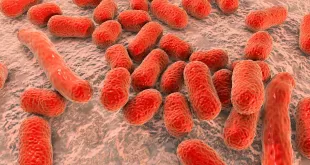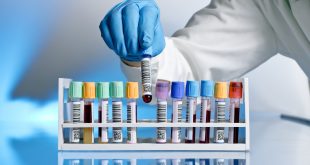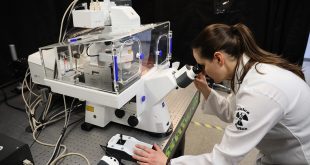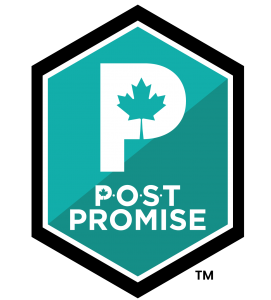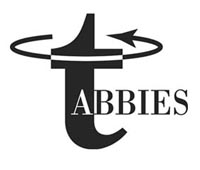By Sean Tarry
Canadian science innovators are leading the fight against COVID-19. These are just some of the many innovative solutions that are being developed in our own backyard.
This year, how we interact with our neighbours and participate within our communities has been transformed by safety measures and protocols imposed by health authorities everywhere. And while these inconveniences present us with unfamiliar challenges, the real impact of COVID-19 lies in the extraordinary number of infections and deaths associated with its escalation. Without question, the virus has left an indelible mark on the year 2020. In an effort to make a return to normalcy, scientists and researchers across the country (and around the world) are working tirelessly to develop vaccines and treatments that can help stop the spread of the coronavirus once and for all – while preparing for the next pandemic.
Applications of the work and research currently being conducted range from the development of thermographic cameras that use artificial intelligence to detect elevated temperatures, to studying llama nanobodies in an effort to control or neutralize the severity of the coronavirus. What follows are snapshots of some of today’s most courageous Canadian-based scientific endeavours as they relate to the detection, understanding, treatment and quest to find a cure for COVID-19.
IMV Inc.
This Nova Scotia–based clinical-stage biopharmaceutical company – which develops immunotherapies to help fight cancer and other serious diseases, with the support of the National Research Council of Canada Industrial Research Assistance Program (NRC IRAP), Atlantic Canada
Opportunities Agency (ACOA) and Next Generation Manufacturing Canada (NGen) – advanced into Phase I clinical development of its COVID vaccine candidate, DPX-COVID-19, this summer. Recently, the Canadian Government increased funding for this project to a total of $10 million.
Instead of taking a traditional vaccine approach, DPX-COVID-19 blends vaccine and immunotherapy science to generate an immune response that targets specific weaknesses of the coronavirus, incorporating several unique key features with the goal to optimize potential safety and efficacy.
“Vaccination is our best hope for ending the current pandemic,” says Frederic Ors, CEO of IMV Inc. “Based on our preclinical results and rapid development, we believe that both our vaccine and manufacturing approaches have the potential to be transformational for COVID-19, and we appreciate the governments’ support and confidence in our progress.”
More recently, in consultation with Health Canada, IMV decided to combine its original Phase 1 and 2 studies into a single trial with the potential to accelerate the clinical development and the timeline of the overall project. The Phase 1/2 trial is expected to be initiated before the end of 2020 after the completion of the preclinical safety, GLP toxicology and challenge studies that are required to advance into Phase 1/2 studies. These preclinical studies have been ongoing since mid-August, and results will likely be published in a peer-reviewed scientific journal near the end of the year.
To increase its current manufacturing capacity, IMV has entered a collaboration with a global manufacturing partner and initiated transfer and scale-up activities of DPX-COVID-19. This collaboration has the potential to bring two additional production sites in India and Europe with capacity to produce several hundred million doses of DPX-COVID-19.
Arch Biopartners
In September, this Toronto-based biophysics company received approval from the Istanbul University Ethics Committee in Turkey to advance into the Phase 2 trial of its drug LSALT peptide (Metablok). By mid-October, the first patient was dosed at the Broward Health Medical Center in Florida, where patient recruitment for the trial continues; the company is also recruiting patients at clinical sites in Louisiana and Turkey.
LSALT peptide was developed to treat patients with severe cases of COVID-19 by targeting acute lung injury and acute kidney injury caused by inflammation. The Phase 2 trial is described by the company as “an international, multicenter, randomized, double-blind, placebo-controlled, proof of concept study” aimed at preventing organ inflammation, one of the widely recognized triggers of respiratory distress syndrome (ARDS) and acute kidney injury (AKI) in patients infected with COVID-19.
The Ethics Committee approval of the trial in Turkey will be followed by a regulatory review conducted by the Turkish Ministry of Health (MoH). Results of Phase 2 will be used to design a Phase 3 trial, which will include a greater number of patients receiving optimal drug dosing.
“We continue to work quickly with our Turkish partners to expand the LSALT peptide Phase 2 trial into Turkey,” says Richard Muruve, CEO of Arch Biopartners. Turkey’s infection rates recently rose from an average of approximately 900 daily cases in July to more than 2,000 daily cases in late October. The company is also exploring the possibility of adding a Canadian clinical site to its trial.
Canadian Coalition for COVID-19
The Canadian Coalition for Covid-19 is a collaboration between several Canadian biotech companies that are working together in the hopes that fragments of antibodies raised and sequenced from the blood of a llama immunized to COVID-19 might serve as the tool that will ultimately help treat the virus.
At the conclusion of several months of research, the Coalition (founded by Cedarlane, Natural Products Canada, Novobind Livestock Therapeutics Inc., SignalChem Lifesciences Corporation and Wilson Sonsini Goodrich & Rosati) published the genetic sequences of 51 fragments, or nanobodies, from a llama named Maple. Maple was immunized for the project and was given a viral antigen, or COVID-19 spike RBD protein, and responded by creating antibodies against the virus. A team of scientists then took a small sample of blood from Maple in order to retrieve the antibodies, which showed a promising ability to bind to the virus and neutralize it.
Because the mandate of the Coalition is to “eliminate the barriers to blockbuster nanobodies and drive the development of scientific data, accurate diagnostics, and efficacious therapeutics through cost-free licenses to all those that want to be part of the global movement,” they are providing scientists and researchers around the world with the free data in order to stimulate further development of treatments and tests for the coronavirus.
“We are working hard at securing pledgees to utilize our nanobody sequences in a multitude of applications,” says Hamlet Abnousi, co-founder and CEO of NovoBind Livestock Therapeutics Inc. “We look forward to growing the list of pledgees comprising of the whole supply chain required to bring a therapeutic or diagnostic to market.”
Alberta Precision Laboratories (APL) COVID-19 Biorepository
Work being conducted by researchers across the country in efforts to fight the spread of COVID-19 recently received considerable support from Alberta Precision Laboratories (APL). In June, APL announced the launch of its COVID-19 Biorepository, which makes samples from the province’s COVID-19 patients accessible to researchers.
The joint venture between APL, the University of Alberta, the University of Calgary and Alberta Health Services is meant to support the development of better diagnostics tools and the search for better treatments of the virus. Michael Mengel, chair of laboratory medicine and pathology at the University of Alberta and North Sector medical director for APL, describes the Biorepository as the result of a “true pan-provincial, pan-university, pan-healthcare system, pan-foundation effort.” And it’s also one that he says is aiding researchers in their bid to find “better diagnostics, faster diagnostics, new treatment options,” to help in the fight to stop the spread of COVID-19.
AbCellera
In collaboration with Eli Lilly and the National Institute of Allergy and Infectious Diseases Vaccine Research Center (VRC), AbCellera brought the first COVID-19 antibody to clinical trials in less than 90 days, a process that typically requires several years. The human antibody, LY-CoV555, already has progressed to Phase 3 clinical trials, and this year the Government of Canada committed up to $175.6 million (via the Strategic Innovation Fund) to assist the company with additional research and building manufacturing infrastructure for antibody therapies against future pandemic threats.
LY-CoV555 is a potent, neutralizing IgG1 monoclonal antibody that has been designed to obstruct viral attachment and prevent entry into human cells. It was the first of its kind to enter human clinical trials, with Phase 2 clinical trials launched in mid-June. Phase 3 of the trial will leverage customized mobile research units to study participants at long-term care facilities across the U.S.
“In a very short time, AbCellera has generated massive amounts of information about how the human immune system responds to SARS-CoV-2,” says Ester Falconer, Ph.D., head of research and development at AbCellera. “Beyond the unique antibodies we’ve identified against the virus, we have data on thousands of related antibodies from the immune repertoires of multiple COVID-19 patient samples. These data sets will continue to inform treatment solutions to combat COVID-19.”
In collaboration with Eli Lilly and the National Institute of Allergy and Infectious Diseases Vaccine Research Center (VRC), AbCellera brought the first COVID-19 antibody to clinical trials in less than 90 days, a process that typically requires several years.
VIDO-InterVac, University of Saskatchewan
Featured as the Lab Profile in the Spring 2020 issue of BioLab Business, the University of Saskatchewan’s Vaccine and Infectious Disease Organization – International Vaccine Centre (VIDO-InterVac) was the first lab in Canada to isolate the SARS-CoV-2 virus. Since receiving $23 million from the federal government this spring to support its COVID-19 research, the organization is now working with other Canadian universities to develop a vaccine, with human trials anticipated to begin this fall. New partners of the internationally recognized facility include infectious disease experts from Dalhousie University and the University of Manitoba, who will work with VIDO-InterVac on one-year secondments in a collaborative effort to advance research and development of a vaccine to be used against COVID-19.
“VIDO-InterVac is the centre of pandemic research in Canada,” says VIDO-InterVac director and CEO Dr. Volker Gerdts. “We are privileged to host these Canadian experts to advance scientific knowledge and develop solutions as the world battles this pandemic.”
PredictMedix
This Toronto-based artificial intelligence firm has developed and recently deployed safe entry modules that are equipped to screen people for several COVID-related symptoms.
The modules, which look similar in aesthetics to traditional metal detectors, use a combination of infrared, thermal and visual spectrum imaging in concert with trained algorithms to detect the numerous COVID-19 symptoms that could be present in an individual. The modules utilize PredictMedix’s vast amount of deep learning in order to correlate an individual’s skin temperature with their core temperature, something that Dr. Rahul Kushwah, co-founder and COO of the company, points out as a critical component that is necessary in properly recognizing symptoms of COVID-19.
“In addition to elevated temperature, our technology has been designed to detect several symptoms that have an association with COVID-19, including changes in an individual’s breathing rate, the presence of pink-eye and coughing,” Kushwah explains.
In partnership with Juiceworks Exhibits, PredictMedix has deployed its COVID-19 symptom mass screening technology at several international events and locations, including a 24-hour retail pharmacy in Montreal. The company plans to release more information about the results of these deployments in the near future.
University of New Brunswick (UNB)
Researchers at UNB are on the verge of developing a coronavirus testing kit that it says offers a faster way to accurately and effectively diagnose those infected with the virus.
The portable point-of-care devices, developed for use by clinicians, are diagnostics tests that address the difficult challenges, collective concerns and grim consequences of the COVID-19 pandemic.
“Essentially, the test would be similar to a glucose sensor for diabetics,” explains Connor Flynn, research scientist at UNB. “It’s a little electrode that would be disposable, that you insert into an analyzer and then that could return a result.”
The aim for researchers and scientists involved in the project is to develop a test that will, within minutes, detect the virus. If this can be achieved, testing capacity can be increased and emergency department wait times at hospitals will be slashed.
Vice-president of research at UNB, David MaGee says the researchers “want to join this global fight to try and harness this virus,” and remains hopeful that UNB will have a functional prototype soon.
VBI Vaccines Inc.
At the end of August, VBI Vaccines Inc. announced data from three preclinical coronavirus studies, as well as the selection of two clinical candidates, each with the potential of proving to be one-dose vaccines. With research operations in Ottawa, the American-based commercial-stage biopharmaceutical company will be entering its VBI-2901 and VBI-2902 into human trials as potential vaccines for COVID-19 by the end of the year.
As part of the preclinical studies, convalescent sera from 20 individuals who had contracted and recovered from COVID-19 were collected for comparison with the objective to evaluate antibody binding titers and neutralizing antibody titers across a number of vaccine constructs.
Based on the data seen to date, the company believes the VBI-2900 program has the potential to be administered as a one-dose vaccine regimen at human doses ranging from 2-5mcg. It also has confidence in the potential for VBI-2901 to offer increased breadth of reactivity across a broader range of coronaviruses.
“We are excited to announce these impressive pre-clinical data, which we believe clearly support the advancement of the two vaccine candidates, VBI-2901 and VBI-2902, into human clinical studies around the end of the year,” said Jeff Baxter, VBI Vaccine’s Inc. president and CEO. “An effective solution to the ongoing COVID-19 pandemic will require a vaccine that is capable of providing robust protection, quickly. We are very encouraged by these results and remain deeply committed to addressing this devastating public health crisis.”
Canada Foundation for Innovation’s (CFI) Major Science Initiative Fund
Among thousands of projects that the program has financed, CFI funding provided $11.3 million to VIDO-InterVac as part of its plan to ensure the country’s large, national research facilities continue to receive the support required to operate optimally and remain at the fore of global research. University of Saskatchewan President Peter Stoicheff says that the major federal investment will “prove critical to Canada’s continued role at the cutting edge of global research and innovation,” and that the government’s commitment enables the University and its research facilities to address some of the biggest global challenges, including infectious diseases like the coronavirus.
Medicago Inc.
Plant-based technology is being leveraged by this Quebec-based biopharmaceutical company, in an effort to produce an experimental plant-based vaccine for the coronavirus. The company has made considerable progress, with Phase 2 trials beginning in early November, and Phase 3 trials starting in December. Medicago also recently reached an agreement with the Government of Canada to supply up to 76 million doses of its vaccine against COVID-19, while receiving $173 million in funding for additional research and development.
The research and development program is also funded by minority shareholder Philip Morris International, and involves the use of a virus-like particle grown in Nicotiana Benthamiana, a close relative of the tobacco plant.
Because the company uses living plants as bioreactors, it’s able to produce non-infectious versions of viruses, or VLPs, that mimic the architecture of a virus. Medicago successfully produced a VLP of COVID-19 in early spring, just 20 days after obtaining the SARS-CoV-2.
Algernon Pharmaceuticals
This Vancouver-based clinical stage pharmaceutical development company announced at the beginning of September that its multinational Phase2b/3 human study of Ifenprodil for the treatment of COVID-19 received its 50th patient enrollee.
Ifenprodil was originally developed in the 1970s by Sanofi for the treatment of neurological conditions like vertigo and dizziness; however, Algernon may be on the verge of unlocking its true potential as a treatment for hospitalized COVID-19 patients, to help support lung function by reducing acute lung injury and inflammation.
“Just looking at the results of the research, it’s astonishing,” stated Mark Williams, Algernon Pharmaceutical’s medical director. “Our drug might have a good chance at modulating the disease and hopefully reducing much of the damage that can occur in the lungs.”
The trial began as a Phase 2b study of an aggregate of 150 patients; the company recently announced the continuation of Phase 2b/3 human studies.
Category 5
A company known primarily for its work producing print and install projects for its clients, Category 5 has quickly grown during the COVID-19 pandemic to become a full-service manufacturer, integrator and installer of Health Canada–certified thermal cameras and personal protective equipment.
The cameras are capable of scanning up to 30 people at a time at a distance of 9 metres, and use a combination of infrared technology and artificial intelligence to read the body temperature of individuals scanned in an effort to help identify those who might be infected with the virus. To do this, the cameras identify the human face, triangulating focus on the forehead to receive the temperature information, which is generated in less than two seconds, with accuracy within half a degree Celsius. If the camera detects an abnormal temperature, an automatic notification can be sent to those designated to receive such alerts.
“Our technology can be a powerful tool in helping the Canadian workforce and general public feel safe and comfortable reintegrating,” explains Mary Barroll, senior vice president of communications at CIEL Capital, a private equity firm that’s invested in and partnered with Category 5.
Spartan Bioscience Inc.
This leading Ottawa-based biotechnology company recently received Investigational Testing Authorization from Health Canada for its COVID-19 test.
Its first shipment of handheld devices and COVID-19 testing kits were due to arrive at healthcare facilities in Alberta, Ontario and Saskatchewan earlier this year; however, in the weeks that followed, provincial purchases of the testing kits were put on hold as Health Canada restricted the device to research use only after problems were cited concerning the kits.
Spartan Bioscience Inc. says that the delay allowed it to incorporate the latest information concerning COVID-19 that involved 12 weeks of intense work, during which time the company tested approximately 10,000 samples as part of its solution to the problem. The innovative handheld device was designed for rapid-testing, and can confirm test results for the virus in as little as 30 minutes.
COVID-19 Vaccine Task Force
In spring, the Government of Canada announced the formation of the country’s COVID-19 Vaccine Task Force. Comprised of 18 members from across the country, the Task Force is charged with providing advice to the Federal Government on all issues related to the development and purchase of COVID-19 vaccines, among other things.
Drawing on the expertise and experience of its science-based leaders in vaccinology and immunology, and supported by a secretariat housed at the National Research Council of Canada, the Task Force counsels the Canadian Government on prioritizing vaccine projects seeking support for activities in Canada; attracting promising non-Canadian vaccine candidates, or partnering with developers of non-Canadian vaccine candidates; optimizing the tools needed to develop vaccines; supporting effective research and development, and supply chain coordination for COVID-19 vaccine projects; facilitating solutions to manufacture the most promising COVID-19 vaccines in Canada; and, identifying opportunities to enhance business connectivity globally to secure access to vaccines with key commercial sponsors.
The COVID-19 Vaccine Task Force will remain active for a minimum of 12 months and is subject to extension at the discretion of the Federal Government. For a list of Task Force members, visit: nrc.canada.ca/en/corporate/covid-19-vaccine-task-force.
COVID-Net
Developed by Darwin AI in collaboration with Linda Wang and Alexander Wong at the University of Waterloo, COVID-Net is a convolutional neural network, a type of artificial intelligence that is adept at image recognition, which has been trained to identify signs of COVID-19 in chest X-rays.
Research was conducted, testing the efficiency and accuracy of COVID-Net, using 5,941 images taken from 2,839 patients suffering from various lung conditions, including bacterial infections, viral infections and COVID-19.
COVID-Net X-ray images have been made open source, available to the general public, in the hopes of benefitting other scientists and researchers in their quest to find effective screening technologies that will help to properly diagnose the virus in patients. In addition, the AI used in COVID-Net has been trained to enable a generation of predictions based on results, allowing it to gain deeper insights into critical factors associated with COVID-19 cases to help improve further screening.
Structura Biotechnology
As scientists and researchers around the world fearlessly pursue the development of vaccines and treatments to prevent the spread of COVID-19, one Toronto-based software company is proving instrumental in helping those involved better understand viral mechanisms and approaches to vaccine development.
Through the use of machine learning algorithms, Structura Biotechnology’s cryoSPARC software was used to solve the first-ever cryo-EM structure of the SARS-CoV-2 spike protein, enabling scientists and researchers to hone in on specific compositions and proteins of disease.
“CryoSPARC’s specialized algorithms for cryo-electron microscopy image processing enabled researchers to see the spike protein’s movement dynamics,” explains Saara Virani, COO of Structura Biotechnology. “And it has been used by many industry and academic groups to investigate neutralizing antibodies, small molecule drugs and other possible therapeutics against the virus.”
There is no question that these are strange times. In its rapid spread from community to community and country to country, COVID-19 has managed to deliver a lesson in humility, and a reminder of just how fragile life is on our planet. It’s tested our resolve, both as individuals and as parts of a greater collective within the neighbourhoods where we interact. Through the strength and perseverance of scientists and researchers, however, there is hope in the form of innovation and creativity. Thanks to the scientific community’s unrelenting pursuit of treatments and vaccines, the impacts of COVID-19 will someday subside. Until then, the fight to find a cure continues.
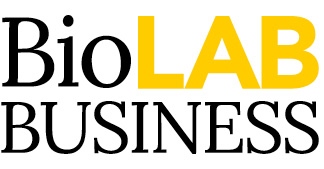 BioLab Business Magazine Together, we reach farther into the Canadian Science community
BioLab Business Magazine Together, we reach farther into the Canadian Science community

